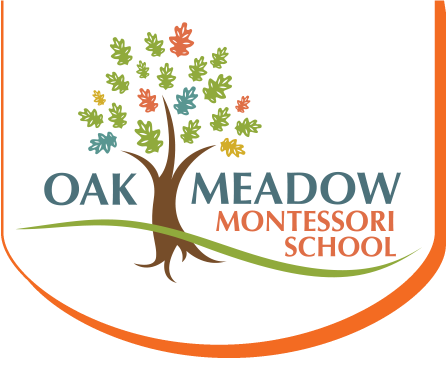
A student writes her own response to the prompt, “what do you like most about Children’s House?”
One after another, three-, four-, or five-year old students stepped up in front of an audience of parents attending a school information coffee. Although the students were understandably a bit nervous as they walked to the front of the large group of adults, as soon as they sat down next to their activity mat, their attention moved from the audience to the learning activity in front of them. For the remainder of each five-minute demonstration, each student sat quietly concentrating on what was in front of them. When they were finished, some of the students looked up with a smile of accomplishment, and in simple terms, explained the activity. The teachers sat on the floor next to their students, ready to support if necessary, narrating the process so parents could understand the many dimensions of the learning being illustrated by the students themselves. This was just one example this week of the way students, teachers, and parents are working in a collaborative way to think deeply about what it means to be a community based on learning.

A powerful presentation that only comes together with teacher, parent, and student collaboration
Last night, I attended the Lower and Upper Elementary after-school performance of the musical “Frozen Jr.” Parents and friends filled the Rizzi Center to capacity. The hard work of the students, memorizing lines and polishing performance skills, was once again so obvious. Shows like this are only possible when students, teachers, and parents are working closely in partnership to achieve a larger objective. In addition to the talents of our students, what stood out to me about last night’s performance was the extraordinary commitment and sacrifice on the part of parents to create an amazing experience for the students. Support was required with costumes, scenery, and behind-the-scenes work as crew members. In all of my school experiences, I have never seen this level of contribution on the part of parents in support of the school community’s drama productions.

Students, parents, and teachers working this week to get ready for the big show
Let me share one final vignette from this past week that illustrates the power of school as a force for building community in our world. Last Tuesday evening, I attended the 2020 Living Legacy event sponsored by the American Montessori Society (AMS) to honor educator and transformative leader Anna Maria Garcia Blanco. This national event was held at Lexington Montessori School. Anna Maria was first introduced to Montessori in 1994 as a Montessori parent. She earned an EdD in Education from Harvard, and returned to Puerto Rico to become an elementary school principal. Over the next two decades, she devoted her life to bringing Montessori education to the public schools in Puerto Rico. At the event on Tuesday, she shared that Montessori schools have had a transformative impact on Puerto Rico, in terms of educational quality for children, as well as social and economic impact for citizens. She explained how Montessori public schools allow children from lower income homes to have access to the high quality education that had previously only been offered to families of wealth. She shared many stories with us — about how school teachers and families helped each other face hardship, economic collapses, and hurricanes. During the recent hurricanes in Puerto Rico, the government shut down the schools. The Montessori school not only did not close, they opened their kitchens and their facilities to care for people and communities. When the larger community felt helpless about rebuilding after the hurricanes, school parents with building and construction experience stepped forward not only to rebuild the school, but to create new industries to make Montessori materials with a much larger market in mind, thus helping to revitalize the local economy.
In the last thirty years, Anna Maria has opened 50 Montessori schools in Puerto Rico, and has been part of the effort to train over 500 Montessori teachers. She is an inspiration for all of us who attended the event at Lexington Montessori this week. We all returned to our own schools with a deeper conviction that schools can provide a much-needed sense of home and community, for our immediate school families, and for others who hope to find a school that is more connected to the well-being of children and families. Community building is not easy work. It continues to be a focus at Oak Meadow.





